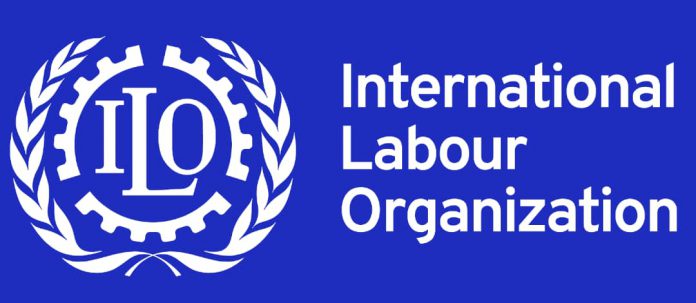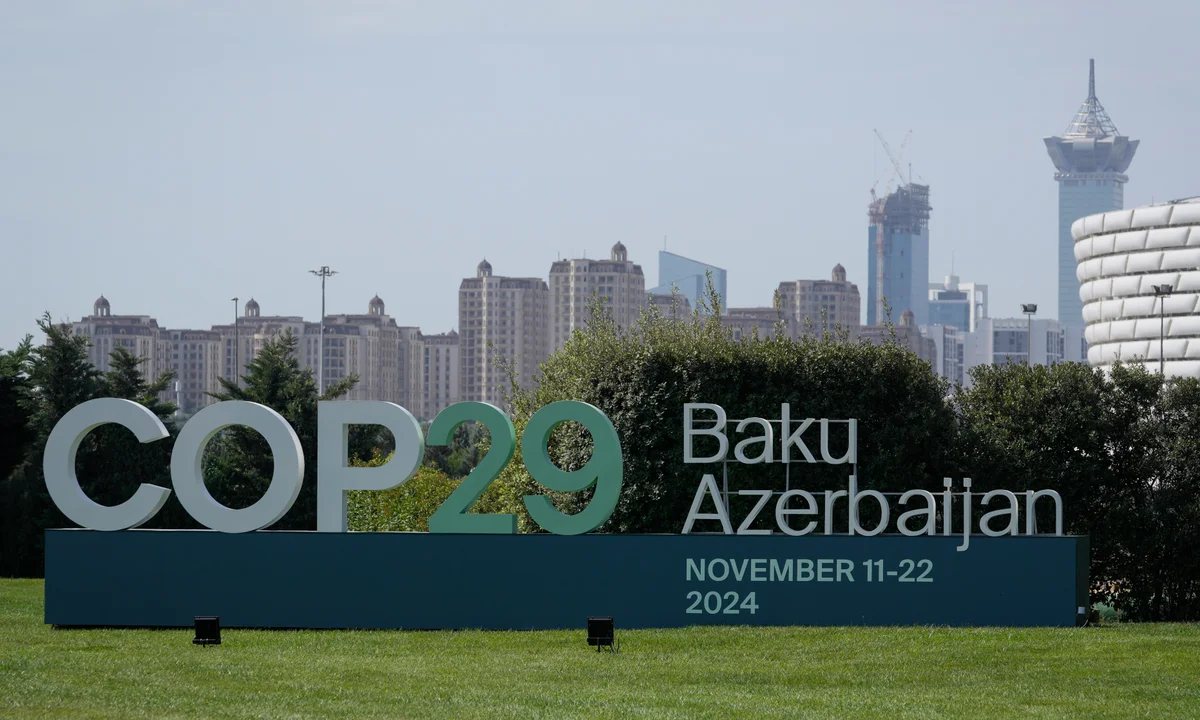The outbreak of the COVID-19 pandemic has led to a global health emergency and economic slowdown, necessitating prevention while promoting economic activities. Using the International Labour Organization (ILO) Start and Improve Your Business (SIYB) modules for business development, UN agencies in collaboration with the government of Nigeria jointly implemented a project to enhance the capacity of local MSMEs/Manufacturers to produce quality Personal Protective Equipment and other health-related products. The SIYB training, jointly implemented by ILO and UN Women, has trained up to 114 MSMEs from the six geopolitical zones in Nigeria.
The United Nations System in Nigeria and the Government of Nigeria implemented a capacity strengthening project for local MSMEs and manufacturers to produce high-quality Personal Protective Equipment (PPE) and healthcare-related products. The project, funded by the UN Basket Fund and jointly implemented by International Labour Organization (ILO), the UN Industrial Development Organization (UNIDO), the World Health Organization (WHO) and UN Women, supports the capacity of Nigerian MSMEs and manufacturers to meet both domestic and foreign demand.
As the pandemic disrupted global supply chains, many countries are focusing on meeting their domestic needs. Many MSMEs are shifting into the production of PPEs to take advantage of the economic opportunity. Several factories, industries, and local manufacturers (including tailors) have shifted their lines of production to take advantage of this increased demand. However, this surge has not been without challenges ranging from understanding how to build a viable business to producing quality PPEs.
The objectives of the training included the need to: address identified skills and knowledge gaps among business owners especially those in the production of PPEs; provide quality resources and technical support to help business owners to grow and expand business operations; identify further areas of support required in this area; develop an understanding of basic gender concepts to be able to promote gender mainstreaming practices and human rights-based approaches in their business operations; and supervise, review and certify Start and Improve Your Business trainers.
In her opening remarks at the event held at the Valencia Hotel on the 28th of February 2022, the ILO Director, Ms Vanessa Phala, regretted the effect of COVID-19 on the economy of the country. Speaking through Dino Corell, she stated that the crisis has affected investment, growth and employment while exerting a negative impact on the competitiveness of micro, small and medium enterprises. “The pandemic has an asymmetric impact on small firms and the workers employed in these units, which have borne the brunt of the fallout from the pandemic,” she said.
Ms Vanessa Phala expressed optimism and reiterated that Micro, small and medium-sized enterprises in Nigeria are vital to achieving decent and productive employment as they globally account for two-thirds of all jobs and create many new jobs.
In the same vein, the UN Women National Programme Officer, Ms Patience Ekeoba who represented the UN Women Country Representative, highlighted that UN Women will pay special attention to enhancing the marketing capacities of women-owned MSMEs for business growth expansion as well as taking up policy issues associated with the distribution of products produced by women and young women entrepreneurs and amplify gender-responsive procurement principles to ensure that government agencies, development partners and private sector entities prioritize PPEs produced by women.
The UNIDO Chief Technical Adviser for the project, Jarl M Hansstein, in his goodwill message noted that a needs analysis has been conducted on selected MSMEs to reveal the areas where they needed support and incentives to improve on their products and businesses. He also mentioned that the project aims to help enterprises to improve the quality of their PPEs and to target also export markets within the ECOWAS region. UNIDO will moreover build on this important training, assisting them in formulating and implementing concrete business plans in relation to the specific objectives to be achieved.
The WHO focal person for the project Tayo Hamzat stated that the project will not only contribute to improving Nigeria’s health status but will also contribute to boosting the economy as it opens Nigeria’s products to the international market because the project was designed in a way to produce quality PPE products in a safe and business-healthy environment. He added that this was a rich project because the selected beneficiaries would have interventions from four Participating United Nations Organizations (PUNOs) and urged the participants to ensure that they make great use of the opportunity.
In his special remarks, the Hon Minister of Labour and Employment Dr Chris Ngige represented by Dr Martina Nwordu, Director of Special Duties and Projects appreciated the different struggles that entrepreneurs passed through and applauded the training as being strategic. The minister stated that “It is, therefore, a good initiative to support these groups of entrepreneurs to access information for the nurturing and positioning of the young business in Nigeria, as a best practice”. He also noted that through the activities of NDE, a Parastatal under the Ministry of Labour, SMEs have benefitted as groups and as individuals from entrepreneurial development as means of job creation. He pledged the ministry’s willingness to effectively support and participate in the project.
Also speaking during the opening ceremony, the Director, Economic Services, Federal Ministry of Women Affairs through the Desk Officer, Women Economic Empowerment, Mrs Joy Obaje pledged their support to the project. He also noted some interventions of the ministry to support women entrepreneurs like access to finance interventions as well the 50 million African Women Speak Platform Project (50MAWSP) funded by the African Development Bank (AfDB) to contribute to the economic and social empowerment of 50 million women in businesses across 38 African countries.
The SIYB training was one of the intervention areas under the entire project and commenced with the training of trainers. The trainers were nominated by the tripartite partners of the ILO and UN women including Nigeria Employers’ Consultative Association (NECA), Trade Union Congress (TUC) of Nigeria, Federal Ministry of Labour and Employment (FMLE), Nigeria Labour Congress (NLC) in addition to those nominated from the Federal Ministry of Women Affairs (FMWA).
The Trainings-of-Entrepreneurs (TOEs) using SIYB modules focuses on starting and improving small businesses as a strategy for creating more and better employment for women and men. The programme is composed of a set of inter-related training packages for different levels of business maturity, including Start Your Business; Improve Your Business, and Expand Your Business. SIYB aims at increasing the viability of MSMEs through management principles suitable for the environment of developing economies.
Up to 114 MSMEs (63 female-owned and 51 male-owned enterprises) from the six geopolitical zones in Nigeria have been trained on how to grow business in a gender-responsive manner. The training was held in three different locations across the country: 64 MSMEs from the northern region (NC, NE, and NW) were trained in Abuja from 28th February to 11 March; 25 MSMEs from the Southwest region were trained in Lagos from 14th to 18th March, and up to 25 MSMEs from South-East and south-south regions were trained in Enugu from 21st to 25th March. Some of the beneficiaries have provided positive feedback on the quality of the programme.
“In my five years of running this business, I have never thought of expansion, because I always had this belief that it is scary. This training made me understand that it is because of some wrong business practices that I have upheld. For example, I have operated with the mentality that the business capital is mine, and as such, I should utilize it the way I choose to. My Ahaa moment came through during the module on financial planning. I learnt in detail the financial implication of every aspect of my business, as well as separating business money from personal money. In fact, if I had continued running my business the way I did before the training especially financially, I would have never scaled” Rashidat, a PPE entrepreneur from Kogi
“The trainers displayed a very high level of having trained themselves properly before training us. They were accessible, emotionally intelligent to manage adult classes, as well as well-grounded in business development SOPs (Standards Operating Procedures). They went out of their way to get the trainees to a great level of satisfaction. The cartoon-level simplification and street-level clarity of the training manual, which is also adaptable to the Nigerian context is one that I am yet to see in any business development training. The naughty issue of cash flow was simplified to the basics such that even a five-year university program is not able to achieve. Simply put, the training manual is excellent for the purpose for which it is intended” Muhammad Kachalla, a PPE entrepreneur from Maiduguri.
In his remarks, one of the SIYB trainers from the Nigeria Employers Consultative Association, Odunayo Balogun, appreciated the funders and the PUNOs of the project describing it as a timely one while calling on the MSMEs not to joke with the opportunity.












